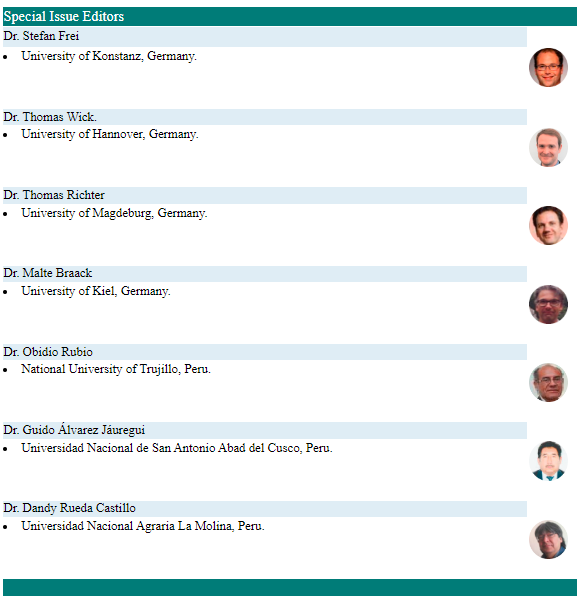A Demonstration of the Cayley Theorem for Groups
DOI:
https://doi.org/10.17268/sel.mat.2021.01.09Keywords:
Categories, functor, natural transformation, Yoneda’s Lemma, Cayley’s TheoremAbstract
In this work, we will prove Cayley theorem, using category theory. We will see a different proof than the one seen in a Group Theory course, in this case we will use a famous result in category theory called the Yoneda lemma and then, to relate groups with such lemma we will take advantage of the fact that every group can be viewed as a category. This proof shows that Yoneda lemma is an extensive generalization of
Cayley theorem for groups.
References
Awodey S. Category Theory, Oxford, Claredndon Press; 2006.
Dubuc EJ. Historia de Categorías. La Gaceta de la RSME. 2014; 17(2):333–347.
Leinster T. Basic Category Theory. Cambridge Studies in Advanced Mathematics, Vol. 143, Cambridge University Press, ISBN 978-1-107-04424-1, 2014. Recuperado de https://arxiv.org/pdf/1612.09375.pdf
MacLane S. Categories for the working mathematician. Second Ed. Springer - Verlag, 1998.
Mejía Alemán C. El lema de Yoneda y algunas de sus aplicaciones.[Tesis de licenciatura]. Lima: Repositorio de tesis digitales, Universidad Nacional Mayor de San Marcos; 2019.
Tondeur P. Categorías y funtores. Cursos y seminarios de matemática, serie A. 2011; Fasciculo 21.
Yokura S. A Remark on Yoneda’s Lemma. Math.CTI. 2017. [accesado 20/12/20]; disponible en https://arxiv.org/ abs/1712.02064
Adámek J, Herrlich H, Strecker GE. Abstract and Concrete Categories The Joy of Cats.[En linea]. Bremen, KatMAT Seminar; 2004. [accesado dic. 2021] Disponible en http://katmat.math.uni-bremen.de/acc/acc.pdf
Downloads
Published
How to Cite
Issue
Section
License
Copyright (c) 2021 Carlos Mejía Alemán, Irene Edith Núñez Rodriguez, Neisser Pino Romero

This work is licensed under a Creative Commons Attribution 4.0 International License.
The authors who publish in this journal accept the following conditions:
1. The authors retain the copyright and assign to the journal the right of the first publication, with the work registered with the Creative Commons Attribution License,Atribución 4.0 Internacional (CC BY 4.0) which allows third parties to use what is published whenever they mention the authorship of the work And to the first publication in this magazine.
2. Authors may make other independent and additional contractual arrangements for non-exclusive distribution of the version of the article published in this journal (eg, include it in an institutional repository or publish it in a book) provided they clearly state that The paper was first published in this journal.
3. Authors are encouraged to publish their work on the Internet (for example, on institutional or personal pages) before and during the review and publication process, as it can lead to productive exchanges and to a greater and more rapid dissemination Of the published work.












